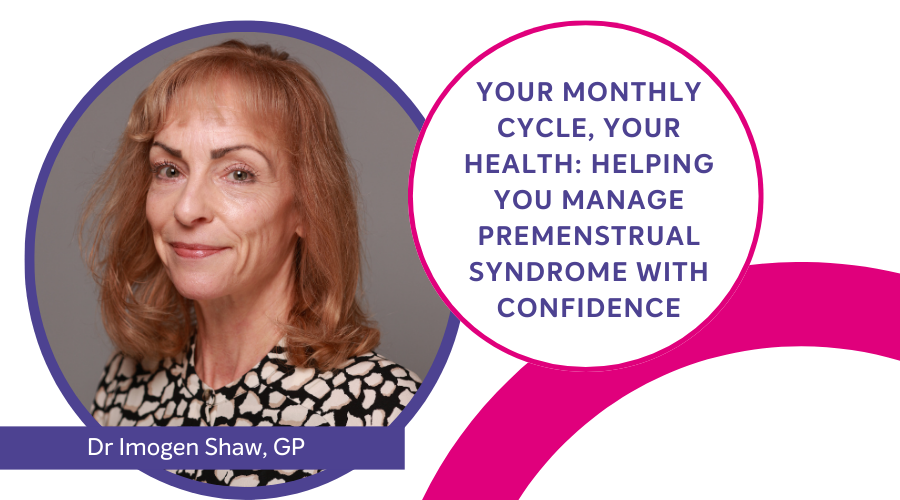Your Monthly Cycle, Your Health: Helping You to Manage Premenstrual Syndrome with Confidence

It’s estimated that as many as 3 in 4 menstruating women have experienced some form of premenstrual syndrome.
Premenstrual syndrome (PMS) is characterised by repetitive, cyclical, physical, and behavioural symptoms occurring in the luteal phase of the menstrual cycle – the time after ovulation and before your period begins. These symptoms typically ease significantly or disappear entirely once menstruation starts.
Premenstrual dysphoric disorder (PMDD) is a more severe variant of PMS. In addition to physical symptoms, at least one affective symptom such as anger, irritability, and/or internal tension occurs during the second half of the menstrual cycle and can continue into the first few days of a period.
A wide range of symptoms can occur in the premenstrual phase, and each woman’s experience is unique. These symptoms are generally grouped into three main categories: physical, psychological, and behavioural.
Physical Symptoms
The most common signs include:
- Breast tenderness
- Abdominal bloating
- Acne
- Headaches
- Fatigue or trouble sleeping
- Cramps and muscle aches
Psychological Symptoms
The most common signs include:
- Feeling very low
- Heightened anxiety
- Irritability
- Aggression
- Self-loathing
- Suicidal thoughts
Behavioural Symptoms
These signs include planning life around the cycle, avoiding social interaction and having time off work.
Many women notice subtle physical or emotional changes in the lead-up to their period; signals that their cycle is about to begin. For some, however, these symptoms are much more intense. It’s estimated that around 5% of women experience symptoms so severe that they significantly disrupt daily life. These symptoms can vary over time – sometimes easing, sometimes becoming more difficult to manage. They often become more pronounced with age and can be especially challenging during the perimenopausal years. This shifting pattern can make it hard to understand exactly what’s going on with your body, leaving many women feeling confused or overwhelmed.
Symptom Diary
If you feel that this describes you, the first thing to do is to start keeping a daily symptom diary (See “What to include in a symptom diary”). Keeping track of your symptoms can give your Hormone Health doctor valuable insight into what you’re experiencing and when. This helps them better understand your unique pattern and work with you to find the most effective way to support your wellbeing.
Treatment
Treatment options range from lifestyle changes and complementary therapies to both non-hormonal and hormonal medical approaches. Symptoms are thought to be triggered or worsened by fluctuations in hormone levels and how these changes interact with the brain.
Every woman is different, so depending on your age, other medical conditions and your hormone status, your Hormone Health specialist can decide with you what options might be best to try when you meet for your consultation.
Hormone Health Support
At Hormone Health, we are passionate about providing evidence-based information to help women make informed decisions regarding their health.
Our Associates are specialists in reproductive and hormonal health. We take a holistic, patient-centred approach to contraception, ensuring your chosen method aligns not only with your medical profile but also with your lifestyle and personal goals.
We then help you to navigate the hormonal changes of the perimenopause, where contraception may also be needed, through to the menopausal years, and maintaining bone health and wellness into older age.
Dr Imogen Shaw is a highly experienced General Practitioner with more than 26 years’ medical experience and specialises in women’s health. Arrange a consultation with Dr Shaw.
The National Association of Premenstrual Syndromes (NAPS), which is one of Hormone Health’s nominated charities, is a patient support group with a very helpful website at www.pms.org.uk, which we recommend that you also look at.